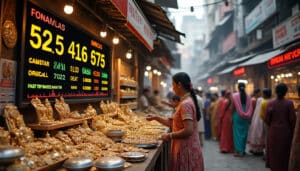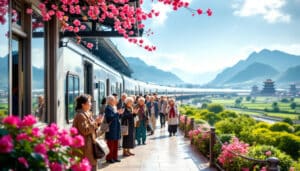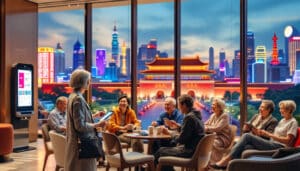China, with its immense potential, is witnessing a true transformation of its travel and hospitality sector thanks to the rise of the silver economy. This dynamic, aimed at leveraging the needs of seniors, leads to profound changes in how tourism is perceived and experienced. The state is implementing innovative initiatives, such as the use of attractive coupons, to appeal to this growing and experienced population. Industry players are mobilizing to offer tailored experiences, thereby rethinking hospitality as a lever for economic growth.

The silver economy of China transforms the travel sector
The tourism sector in China is undergoing a transformation, notably due to the emergence of the silver economy. This phenomenon refers to the increase in purchasing power among the elderly and their potential as consumers. Thus, travel companies are adapting to this new clientele by creating tailored offers and customized services. Coupons and special offers are becoming increasingly common, making travel and hospitality accessible to a larger number of seniors.
The impact of coupons on the hospitality sector
With the increasing popularity of coupons, hotels and other restaurants in China are adapting their business strategies. Many businesses are offering discounts and attractive packages to attract senior clientele. This movement not only increases the influx of visitors but also promotes responsible consumption, which is beneficial for the environment. Concurrently, initiatives to enhance hospitality aim to raise service standards, ensuring memorable experiences for tourists.
The advantages of the silver economy for the future of tourism
The silver economy presents numerous opportunities for the development of the tourism sector in China. Support for seniors and the creation of tailored cultural programs enhance interest in travel. By 2030, it is anticipated that the number of cruise passengers and senior travelers will continue to rise, transforming the landscape of national tourism. Businesses are committed to ensuring quality service and inventing new experiences while taking into account the specific needs of this unique clientele. Thus, the future of the Chinese tourism sector looks promising and dynamic.
The silver economy of China and its impact on the travel and hospitality sector
The silver economy in China is on the rise, redefining the dynamics of the travel and hospitality sector. This concept, focused on seniors and their needs, is expressed through innovative strategies aimed at attracting this rapidly growing population. By incorporating coupons and special offers designed for the elderly, China is paving the way for more inclusive and dynamic tourism.
More and more tourism businesses and hospitals are adjusting their offerings to meet these new challenges. Themed stays, cultural excursions, and transportation services specifically for seniors make perfect sense in this context. Thus, destinations are becoming more accessible, promoting tourist consumption and the development of infrastructure necessary for a rewarding travel experience for older adults.
Highlighting the silver economy also allows for the consideration of the value of experiences and personalized services. Industry professionals are focusing on improving hospitality tailored for seniors, while ensuring their comfort, security, and well-being. This evolution is not only about attracting more visitors but also about creating a service community capable of sustainably meeting the expectations of this clientele.
In summary, the silver economy is an undeniable lever for the tourism sector in China, promising sustainable growth and economic strengthening. This transformation encourages the country to position itself as a destination of choice for older travelers while fostering harmonious and inclusive development within the travel and hospitality industry.











